Friends of AHBIC
If you aren’t already a Friend of AHBIC, we welcome you to join our group of organisations and individuals who are supporting Australia’s national beekeeping industry that supports you.


If you aren’t already a Friend of AHBIC, we welcome you to join our group of organisations and individuals who are supporting Australia’s national beekeeping industry that supports you.
Hosted by AHBIC including presentations to share the work being done under the National Transition to Management for Varroa.
Including:
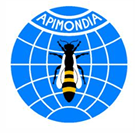
World Bee Day is observed on 20 May each year to draw attention to the essential role bees and other pollinators play in keeping people and the planet healthy. It provides an opportunity for governments, organizations, civil society and concerned citizens everywhere to promote actions that will protect and enhance pollinators and their habitats, improve their abundance and diversity, and support the sustainable development of beekeeping. Find out more
While the common honeybee (Apis mellifera) gets most of the attention, a fascinating group of close relatives, the stingless bees (Meliponini), have been quietly humming along for millennia. These ecologically important pollinators boast a rich history of honey production and hold immense potential for sustainable agriculture. However, their path is not without challenges.
Forests and bees – you might not immediately picture these two together. We often associate bees with blooming meadows bursting with flowers. But forests play a vital role in the lives of bees, and bees are essential for the health of forests.
The Competition was an integral part of the 48th Apimondia International Apicultural Congress. Read about the competition and final results.
The Government of Slovenia and the Food and Agriculture Organization of the United Nations (FAO) are organizing an International forum for action on sustainable beekeeping and pollination. This biennial event brings together governments, experts, business and civil society to give a regular fresh impetus to the international cooperation on beekeeping and pollination and to align it with the quickly changing needs. Find out more
The Symposium draws international attention to the welfare status of honeybee production and the impact of health in the animals and environment. The event will bring together beekeepers and international experts from the scientific community to foster research and share experiences and new practices in beekeeping to protect the health of bees, consumers, and our world. Organised by AVESPA, Apimondia and Universidad Complutense de Madrid.
Find out more and registration
Apimondia has several working groups
Editor of the Newsletter
Asger Søgaard Jørgensen
Dean of the Honorary Members of Apimondia | asj@biavl.dk
The next Apimondia Congress will be held in Copenhagen Denmark on 23 – 27 September 2025 in Cooperation with the Beekeepers’ Associations from Sweden, Norway and Denmark.
www.apimondia2025.com
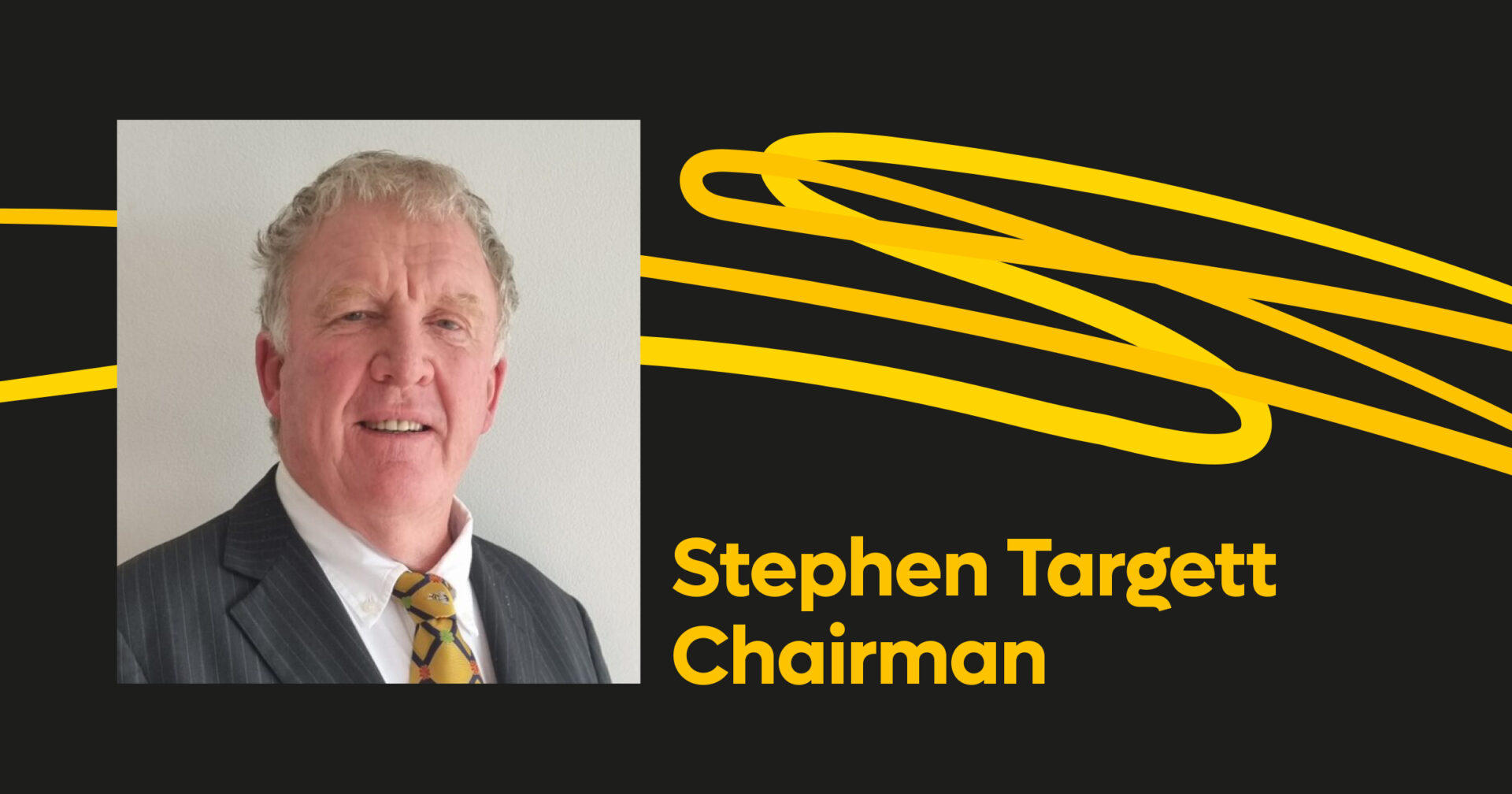
The Transition to Management (T2M) rollout is under way.
NSW DPI have completed the first ‘Train the Trainers’ event in NSW and I attended one of the NSW Varroa Management Workshop provided by the T2M in early April in Bega, NSW. I encourage everyone to make the effort to get along to one of these workshops. There is a lot of good information to assist beekeepers to make informed decisions on managing varroa. There are a limited number of workshops so make the effort and get to one near you.
I strongly encourage everyone that attends these workshops to get the contact details for the Varroa Development Officers (VDO’S) in your state and keep them handy.
AHBIC will be focusing on other parts of the T2M such as Code of Practice and Biosecurity Manual updates and importantly an Australian COLOSS survey as we move forward.
If you have never attended a state conference now would be an excellent time to start. I am sure that all state conferences will have a range of speakers to talk on varroa monitoring, treatments and the latest research. This knowledge will assist your business decisions with regard to varroa and its management. Have a look at our events page for a state beekeeping event near you: https://honeybee.org.au/events/
Want to provide your constructive feedback personally to AHBIC? – I recommend you attend your state conference, where at least AHBIC CEO or Chair will be in attendance so you can approach us to have a chat. Another way to formally reach AHBIC is via the state body conference – we encourage beekeepers to raise issues in General Business at your state association conference requesting they are put through to AHBIC.
AHBIC continues to lobby the APVMA to have as many mite treatments as possible approved for use in Australia. An application for ApiBioxal (Oxlaic Acid) was submitted at the start of the year and we await feedback from APVMA and NSW DPI. Approvals are a slow process. Other issues we are working through are export protocols, surveillance hives and other biosecurity matters.
The CEO has had a well earnt break. Thank you to Bianca who has covered for him in his absence. AHBIC work and meetings to attend do not stop for anyone. A thank you to Jon Lockwood for stepping in to cover me for a couple of meetings in the next week or two. AHBIC is very much a team effort. From the guidance given by member bodies to fine tuning by the executive and the mundane but necessary meetings attended by several people. This all helps to raise AHBIC’s profile and to make sure that AHBIC focuses on the priorities that have been set by the strategic plan and our member bodies.
Stephen Targett
Chair

I have been lucky enough to have a couple of weeks break in April to reset and recharge. Thanks to Bianca, Stephen and Jon for covering whilst I was away. My wife and I had an amazing trip to Cambodia working with a charity using agriculture to break the poverty cycle. Worlds away from Varroa!!
Over the last month AHBIC has been focused on the Transition to Management along with providing oversight and ILO activities for both the Queensland Asian Honey Bee incursion and the Red Dwarf Honey Bee detection in the west.
We continue to put pressure on the jurisdictions to provide industry with their plans for boarder movements now we are transitioning. It is frustrating for everyone that we still do not have any clarity as to what Spring will look like for beekeepers. We will keep applying pressure to jurisdictions to publicly inform industry of boarder movement restrictions.
AHBIC has regained membership to the ACCC’s Agriculture Consultive Committee which is an important step in keeping honey and mislabeling in front of mind for the ACCC. We have also applied for membership of the DAFF non-prescribed foods export reform committee to ensure that any modernisation of export systems for honey, actually benefits our exporters and doesn’t create additional red tape.
National R&D forum
Over 60 honey bee researchers, beekeepers and funders came together in Canberra to workshop and priorities the R&D needs in the face of Varroa. This workshop was an important initiative that was made possible by the AgriFutures Honey Bee and Pollination Advisory panel to understand what research is underway where are the gaps and what are the priorities.
This facilitated workshop will produce a R&D National Varroa Strategic Plan that will be circulated to gain broader industry feedback before being finalised and used to guide industry investments. This is first time this type of coordinated approach has been used to develop the plan. To have your input, please complete the form: https://www.surveymonkey.com/r/VarroaResearchStrategy We look forward to being able to communicate the draft outcomes with industry as soon as it becomes available.
National Bee Breeding Workshop
On the back of the R&D workshop a National Bee Breeding Workshop was also held with the aim of producing a National Bee Breeding Strategic plan. This will help achieve a collective approach to identifying and improving Varroa resistant stock in Australia and also improve genetic gains generally.
Similarly to the R&D strategy the facilitators will draft a strategic plan that we will be able to circulate broadly around industry for consultation. This plan will help guide investment and assist AHBIC in lobbying for additional investment in our industry. Again, we thank the support from the AgriFutures Honey Bee and Pollination Advisory Panel for enabling the workshop.
Launching of the AgriFutures/AHBIC webinar and podcast series
In a collaboration between AHBIC and AgriFutures we have launched a section on the AHBIC website that will host a growing suite of Varroa focused resources. Initially it will include a new interview with an expert each week for six weeks and factsheets that have been produced by the team that produced the Resilient Beekeeping in the Face of Varroa publication.
We hope to be able to keep updating the website section as new information becomes available from different research projects. Well done to the Agrifutures team and Bianca from AHBIC in getting this resource developed.
The 5th Australian Bee Congress
At a recent AHBIC member body meeting it was agreed that AHBIC will host the next national congress in 2026. We are in the process of establishing a sub-committee to begin the process of selecting a venue and planning the congress. We are excited about the prospects of the next congress, and we will aim to make it the best congress yet!!
Varroa Response and Levies
All AHBIC member bodies have unanimously agreed to begin the process of proposing a 1 cent per kilogram of honey sold levy increase. This increase will be used to pay the 1.1% of the Varroa response costs that the honey bee industry is responsible for. It was agreed that the increase would be temporary and will be removed as soon as sufficient funds were raised to pay the debt.
This may seem unfair that we are required to pay for a response that caused significant impacts to many in the industry. However, as part of the Emergency Pest Response Deed that we as an industry signed up to many years ago, we have legal responsibility to pay our share. Since AHBIC’s extensive work to achieve re-catergorisation last year for varroa destructor, the share and proportion has significantly reduced as the Government is responsible for paying 80% of the costs and the 16 industry parties responsible for the remaining 20%. Each industry parties share is calculated based on Gross Value of Production (GVP) resulting in the honey bee industry paying 1.1% of the total cost.
Senate Inquiry into the Biosecurity Protection Levy
AHBIC has united with many primary industries in opposing the proposed federal biosecurity protection levy due to be imposed in July this year. AHBIC witnessed at the recent senate inquiry explaining to the committee of senators the inequities in the government proposal.
Key points raised were the lack of consultation from government, the proposed calculations of contributions and the inequity of the levy collection in our industry.
The Month Ahead
Jon Lockwood, as acting Chair, and myself will be attending the AgriFutures Levied and emerging industry forum next week. This will be an opportunity to provide feedback to AgriFutres and build stronger connections with other like minded industries.
The first of the many conferences start with NSWAA on 22nd May which we will be attending followed shortly by many of the other AHBIC member body’s conferences. Check the AHBIC website for a list of dates.
Towards the end of next month(May), the next round of Plant Health Australia member meetings and all the associated meetings around that will be held in Sydney. This is an opportunity to again connect with other plant industries but also provide feedback to PHA.
Regards
Danny LeFeuvre
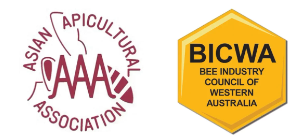
Bee experts and enthusiasts from across Asia will gather to discuss and see the latest discoveries and technologies from across the region. With an expectation of up to 400 delegates, sponsors, and bee enthusiasts, this event is not to be missed.
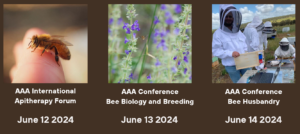
Wednesday 12th June: AAA international Apitherapy Forum
Thursday 13th June: AAA Conference – Bee Biology and Breeding
Friday 14th June: AAA Conference – Bee Husbandry
Having previously hosted the 8th AAA Conference in 2006, Perth welcomes you to be part of this significant event once again.
Founded in 1993 and based in Beijing, China, the Asian Apicultural Association (AAA) is led by Prof. Siriwat Wongsiri, from Thailand. With over 20 member countries, AAA facilitates communication among bee scientists and beekeepers across Asia. AAA has organised conferences for global collaboration in bee sciences, aiming to enhance research, improve beekeeping practices, and raise awareness about the vital role of bees in pollination and ecosystem preservation.
The deadline for reduced conference fees is 31 March so get in quick.
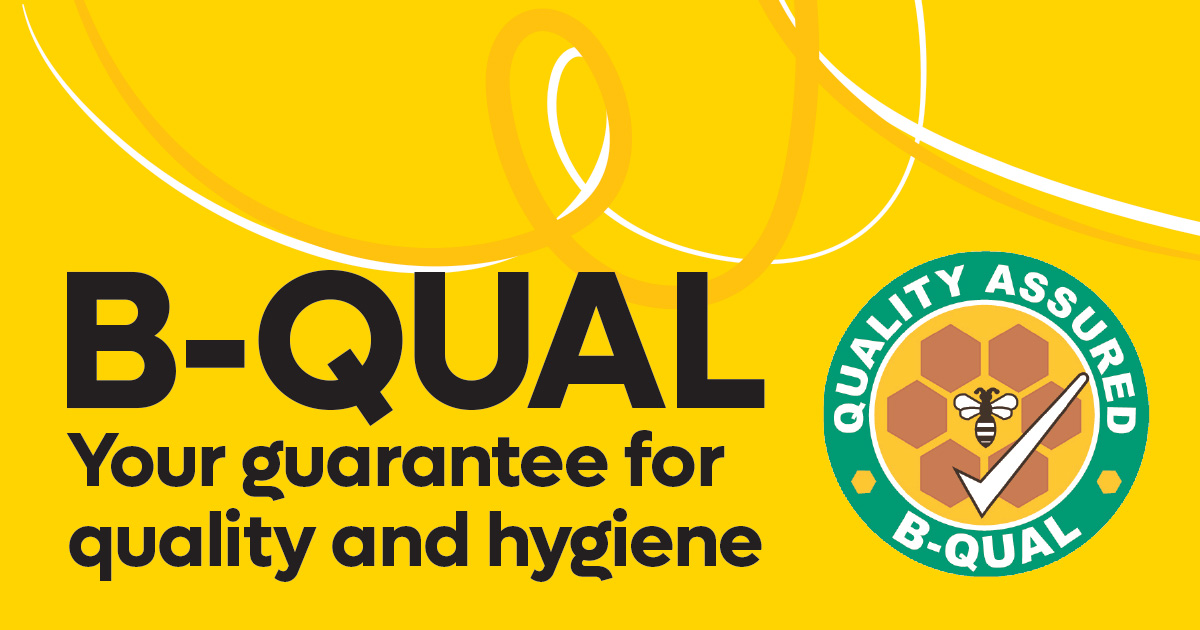
B-QUAL is an Industry Owned Quality Assurance System for Australian beekeepers.
How does B-QUAL certification benefit my business?
B-QUAL Certification also enables an enterprise to market its product under the B-QUAL logo to show that it meets the B-QUAL Industry Standards.
Complete your training at home at your own pace.
For more information and to obtain a Certification Information Pack, contact the B-QUAL Certification team.
www.bqual.com.au
B-QUAL Pty Ltd
Phone 07 49949820
Email: admin@bqual.com.au
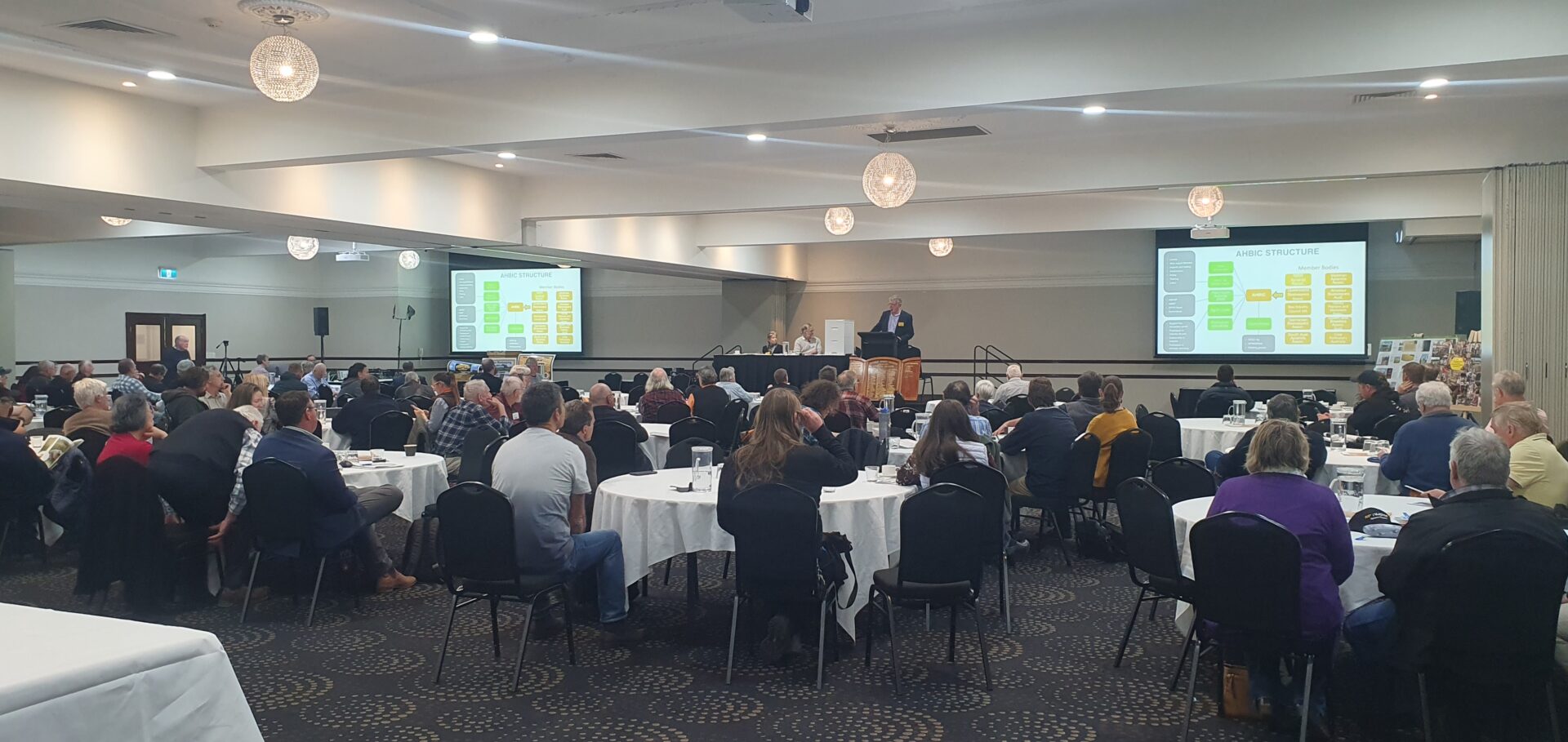
Set your calendars, find your state association and member body below, make sure to support your annual conference.
| Association | Date |
| New South Wales Apiarists Association | 23 & 24 May – Wagga Wagga, NSW |
| Tasmanian Beekeepers Association | 31 May & 1 June – Launceston, TAS |
| Queensland Beekeepers Association | 11 & 12 July – Townsville, QLD |
| South Australian Apiarists Association | TBA |
| Victorian Apiarists Association | 4th, 5th and 6th of June-Wonthaggi, VIC |
| Australian Honey Bee Industry Council – AGM | 10th July – Townsville, QLD |
| Honey Packers and Marketers Association | TBA |
| Australian Queen Bee Breeders Association | TBA |
| Bee Industry Council of WA
17th Asian Apiculture Association Conference and AAA Apitherapy Forum 2024 |
Field Day Only in 2024, TBA
12 – 14 June 2024 – Esplanade Fremantle, Perth WA |
| Crop Pollination Association of Australia Inc. | 22 May 2024, Wagga Wagga, venue TBA |